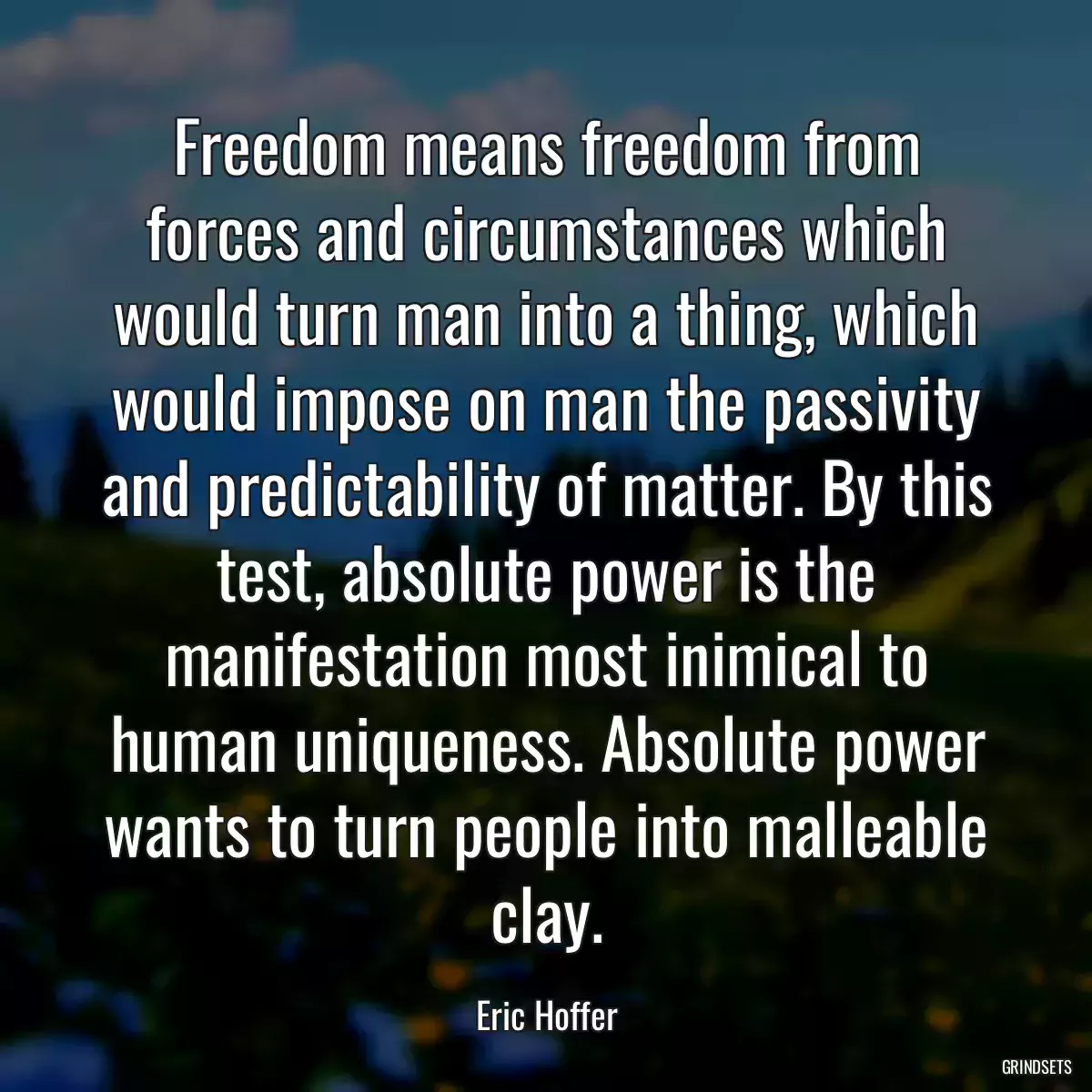
Quotes Eric Hoffer - page 2
Find dozens of Eric Hoffer with images to copy and share.

They who lack talent expect things to happen without effort. They ascribe failure to a lack of inspiration or ability, or to misfortune, rather than to insufficient application. At the core of every true talent there is an awareness of the difficulties inherent in any achievement, and the confidence that by persistence and patience something worthwhile will be realized. Thus talent is a species of vigor.
Learners inherit the earth; while the learned find themselves beautifully equipped to deal with a world that no longer exists.
In an adequate social order, the untalented should be able to acquire a sense of usefulness and of growth without interfering with the development of talent around them
You may also like
Judgment consists not in seeing through deceptions and evil intentions, but in being able to awaken the decency dormant in every person.
There is in even the most selfish passion a large element of self-abnegation. It is startling to realize that what we call extreme self-seeking is actually self-renunciation. The miser, health addict, glory chaser and their like are not far behind the selfless in the exercise of self-sacrifice.
You accept certain unlovely things about yourself and manage to live with them. The atonement for such an acceptance is that you make allowances for others - that you cleanse yourself of the sin of self-righteousness.
Language was invented to ask questions. Answers may be given by grunts and gestures, but questions must be spoken. Humanness came of age when man asked the first question. Social stagnation results not from a lack of answers but from the absence of the impulse to ask questions.
In man's life, the absence of an essential component usually leads to the adoption of a substitute. The substitute is usually embraced with vehemence and extremism, for we have to convince ourselves that what we took as second choice is the best there ever was. Thus blind faith is to a considerable extent a substitute for the lost faith in ourselves; insatiable desire a substitute for hope; accumulation a substitute for growth; fervent hustling a substitute for purposeful action; and pride a substitute for an unattainable self-respect.

One is not quite certain that creativeness in the arts, literature, and science functions best in an environment of absolute freedom. Chances are that a relatively mild tyranny stimulates creativeness.
Absolute faith corrupts as absolutely as absolute power.
Absolute power turns its possessors not into a God but an anti-God. For God turned clay into men, while the absolute despot turns men into clay.
Absolute power corrupts even when exercised for humane purposes. The benevolent despot who sees himself as a shepherd of the people still demands from others the submissiveness of sheep. The taint inherent in absolute power is not its inhumanity but its anti-humanity.
The taint inherent in absolute power is not its inhumanity but its antihumanity.
Those in possession of absolute power can not only prophesy and make their prophecies come true, but they can also lie and make their lies come true.
There are similarities between absolute power and absolute faith: a demand for absolute obedience, a readiness to attempt the impossible, a bias for simple solutionsto cut the knot rather than unravel it, the viewing of compromise as surrender. Both absolute power and absolute faith are instruments of dehumanization. Hence, absolute faith corrupts as absolutely as absolute power.
Our sense of power is more vivid when we break a man's spirit than when we win his heart. For we can win a man's heart one day and lose it the next. But when we break a proud spirit we achieve something that is final and absolute.
You may also like

All mass movements strive, therefore, to interpose a fact-proof screen between the faithful and the realities of the world. They do this by claiming that the ultimate and absolute truth is already embodied in their doctrine and that there is no truth nor certitude outside it. The facts on which the true believer bases his conclusions must not be derived from his experience or observation but from holy writ.